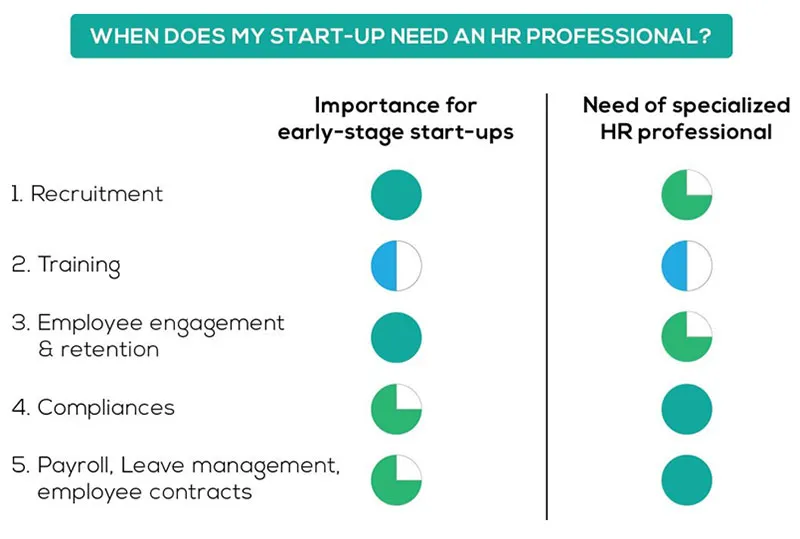Five things to keep in mind if you’re confused about when to hire a HR ninja for your startup
An early-stage startup is almost inevitably trying to figure out the dollar-allocation conundrum. That additional dollar put to marketing can get you more customers, put to technology can get you a sturdier product and so on. When do you really want to start spending on creating an HR function?

To answer this question, let’s first understand what all can the HR function/professional help you do:
- Recruitment.
- Training.
- Employee engagement and retention.
- Compliances.
- Payroll, leave management, employee contracts, etc.
1) Recruitment: The alternative to using an HR professional for recruitment are headhunters/consultants or startups like Belong, TalentPad. Most conventional consultants work at exorbitant rates of anywhere between 5 and 15 percent of the employee’s annual CTC. Even if you subscribe to a service where you get a database of prospective candidates, you are going to find yourself making a lot of calls and wasting a lot of time setting these interviews up.
2) Training: This can wait for a while typically for most early-stage startups. More often than not, you are equally well-off having specialists take care of this as a side project (training your call centre executives in the art of sales can be done by a salesperson on the senior team). An HR professional can help set the curriculum and the cadence, but is definitely not indispensable on this count.
3) Employee engagement and retention: A good HR professional can be ingenious and effective at keeping employees motivated and hungry by creating the right rewards and incentives structure. Remember that kickass farmhouse get-together at your last job or the award you won for your performance. The HR team probably had a role to play in there! You can hire as many excellent employees as you like, but your startup is not going places unless you hold on to the best of yours for years together. The HR professional is a key spoke in that wheel.
4) Compliances: There are several compliances that you owe to the local and central authorities and governing bodies. Some of these like professional tax and provident fund kick-in when you cross a certain number of employees, currently 15. There are agencies or consultants who can help you take care of your accounts, filings, and compliances for a fixed fee per month. You might still want to hold the cards close to your chest by having an HR professional oversee this – especially, as you begin to hit the 30–35 employees mark.
5) Payroll, leave management, employee contracts: If you have emerged out of the stage where your startup is three best friends writing code 24X7 out of a garage, you are probably spending some time doing employment contracts, calculating taxes, managing payrolls, etc. Perfectly legitimate for the co-founders to do it themselves while you are still small; however, you will realise the amount of time that this and the occasional dispute resolution can take up will explode all of a sudden.
In summary, irrespective of your stage and budget of operations, you are probably spending money (and senior management bandwidth) on #1 and #5. Most forward-looking startups that have moved out of the mythical ‘garage’ will also spend some on #2 and #3. And then you also want to be on the right side of the compliances. While you can have senior resources doubling up to play the HR role, there soon comes a stage when creating the specialist HR function becomes inevitable.
Think of it like the lubricant in your car – you can drive a car for some distance without it – but at the risk of poor mileage (sub-optimal use of senior resources) and permanent damage to the engine (poor employee engagement and culture).
I end with one hack for recruiting your first HR professional though. Think of it the same way as you do when recruiting your first tech employee. You want a “full-stack” player. Large corporations typically divide HR roles and responsibility into multiple verticals. Hence, professionals from large companies may not have the experience of the entire spectrum of the expansive HR role. Startups best hire HR, like much else, from other startups!

Source: BigStylist experience







